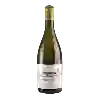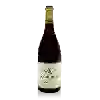
Winery Guybout de FraytièreLes Fondoirs Meursault
This wine generally goes well with rich fish (salmon, tuna etc), shellfish or mild and soft cheese.
Food and wine pairings with Les Fondoirs Meursault
Pairings that work perfectly with Les Fondoirs Meursault
Original food and wine pairings with Les Fondoirs Meursault
The Les Fondoirs Meursault of Winery Guybout de Fraytière matches generally quite well with dishes of pasta, rich fish (salmon, tuna etc) or shellfish such as recipes of tagliatelle with fresh salmon, summer tuna quiche or marmite dieppoise.
Details and technical informations about Winery Guybout de Fraytière's Les Fondoirs Meursault.
Discover the grape variety: Chardonnay
The white Chardonnay is a grape variety that originated in France (Burgundy). It produces a variety of grape specially used for wine making. It is rare to find this grape to eat on our tables. This variety of grape is characterized by small bunches, and small grapes. White Chardonnay can be found in many vineyards: South West, Burgundy, Jura, Languedoc & Roussillon, Cognac, Bordeaux, Beaujolais, Savoie & Bugey, Loire Valley, Champagne, Rhone Valley, Armagnac, Lorraine, Alsace, Provence & Corsica.
Informations about the Winery Guybout de Fraytière
The Winery Guybout de Fraytière is one of of the world's great estates. It offers 52 wines for sale in the of Meursault to come and discover on site or to buy online.
The wine region of Meursault
The wine region of Meursault is located in the region of Côte de Beaune of Burgundy of France. Wineries and vineyards like the Domaine Coche-Dury or the Domaine d'Auvenay (Lalou Bize Leroy) produce mainly wines white and red. The most planted grape varieties in the region of Meursault are Chardonnay et Pinot noir, they are then used in wines in blends or as a single variety. On the nose of Meursault often reveals types of flavors of pineapple, banana or toasted almonds and sometimes also flavors of baked apple, elderflower or orange.
The wine region of Burgundy
Bourgogne is the catch-all regional appellation title of the Burgundy wine region in eastern France ("Bourgogne" is the French name for Burgundy). Burgundy has a Complex and comprehensive appellation system; counting Premier Cru and Grand Cru titles, the region has over 700 appellation titles for its wines. Thus, Burgundy wines often come from one Vineyard (or several separate vineyards) without an appellation title specific to the region, Village or even vineyard. A standard Burgundy wine may be made from grapes grown in one or more of Burgundy's 300 communes.
The word of the wine: Yellow wine
White wines from the Jura region aged in oak barrels without topping up for at least 6 years. A veil of yeast forms on the surface of the wine, which undergoes slow oxidation, giving it a particular taste reminiscent of nuts.














